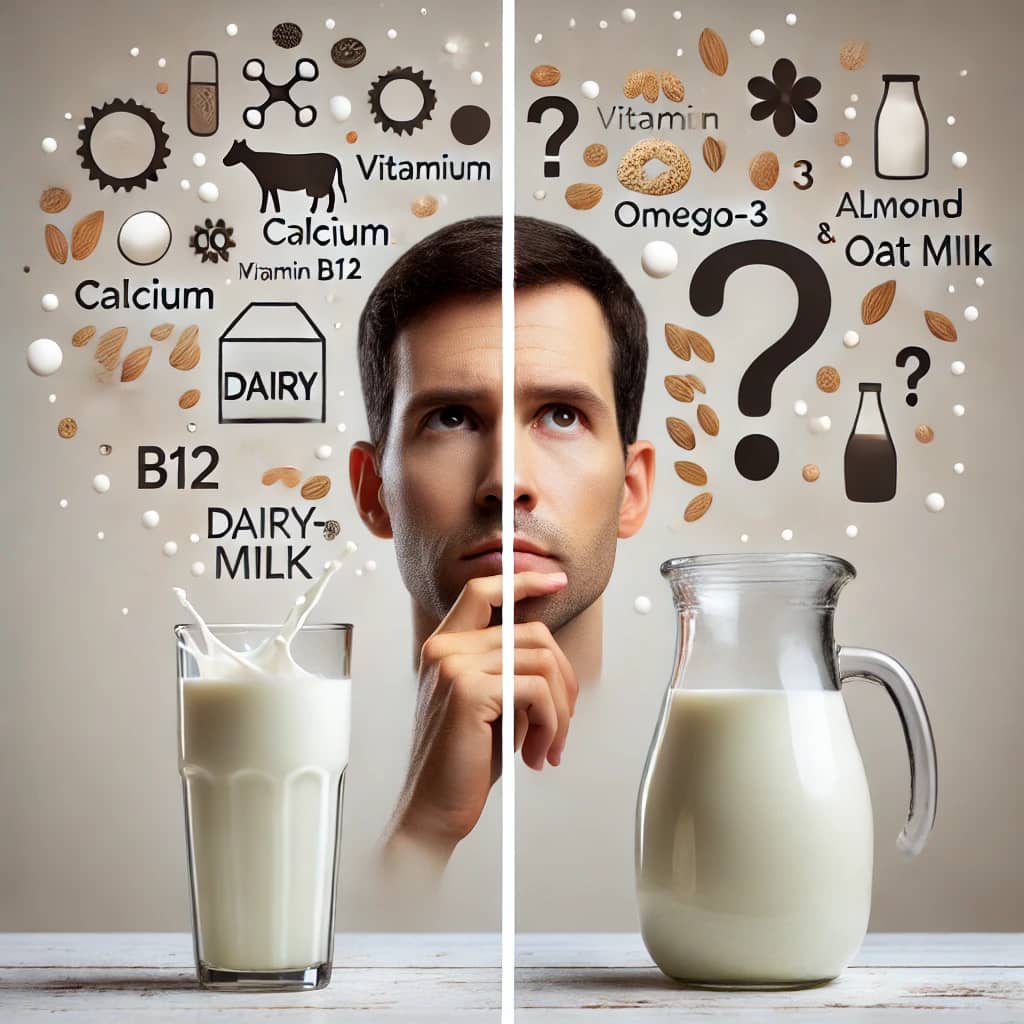INTRODUCTION
The growing popularity of dairy-free milk has sparked debates about its impact on health, with a recent study suggesting a possible link between dairy-free milk consumption and an increased risk of depression. While plant-based milk alternatives such as almond, oat, soy, and coconut milk are widely consumed for their perceived health benefits, researchers are now questioning whether eliminating dairy from one’s diet could have unintended mental health consequences.
WHAT DOES THE STUDY SAY?
A study published in Frontiers in Nutrition found that individuals who consumed dairy-free milk reported higher rates of depression compared to those who drank full-fat or semi-skimmed dairy milk. Researchers theorized that certain nutrients found in cow’s milk—such as vitamin B12, calcium, iodine, and omega-3 fatty acids—may play a role in brain function and emotional well-being. The absence of these key nutrients in plant-based alternatives, unless properly fortified, could contribute to mood imbalances and an increased risk of depression.
However, experts caution against drawing firm conclusions just yet. The study had several limitations, including a lack of control for other factors such as overall diet quality, calorie intake, and lifestyle habits. While the findings raise important questions, they do not necessarily prove that dairy-free milk causes depression.
NUTRITION AND MENTAL HEALTH: WHAT’S THE CONNECTION?
The brain relies on a steady supply of essential nutrients to regulate mood, cognitive function, and emotional stability. Deficiencies in key nutrients, particularly those found in dairy products, may contribute to mental health struggles:
Vitamin B12: Essential for nerve function and the production of neurotransmitters like serotonin and dopamine, which influence mood. Dairy is a natural source, while plant-based milk requires fortification.
Calcium: Plays a role in nerve signaling and muscle function. Inadequate calcium intake has been linked to anxiety and mood disorders.
Iodine: Crucial for thyroid function, which regulates energy levels and emotional stability. Dairy products are a primary dietary source, whereas plant-based alternatives often lack iodine unless fortified.
Omega-3 Fatty Acids: Found in dairy from grass-fed animals, omega-3s are important for brain health and have been shown to help reduce symptoms of depression. Many plant-based milks do not naturally contain omega-3s.
PLANT-BASED MILK: A HEALTHY CHOICE OR A RISK FACTOR?
Dairy-free milk alternatives offer numerous health benefits, particularly for those who are lactose intolerant, allergic to dairy, or following a vegan diet. Many plant-based milks are fortified with essential vitamins and minerals to bridge nutritional gaps. However, not all brands offer the same level of fortification, and some may contain additives, sweeteners, and emulsifiers that could affect gut health—another factor linked to mental well-being.
To ensure a balanced diet, individuals who consume dairy-free milk should:
Choose fortified options that contain vitamin B12, calcium, and iodine.
Incorporate other sources of essential nutrients, such as leafy greens, nuts, seeds, and fish (if not following a vegan diet).
Monitor overall diet quality, as a well-rounded, nutrient-dense diet plays a far greater role in mental health than any single food choice.
WHAT DOES THIS MEAN FOR YOU?
The debate over dairy-free milk and depression highlights the importance of nutritional awareness and balance. While eliminating dairy does not necessarily lead to mental health issues, it is essential to ensure that plant-based alternatives provide adequate nutrients to support brain function. Before making significant dietary changes, consulting a healthcare professional or nutritionist can help determine the best approach for maintaining both physical and mental well-being.




No comment